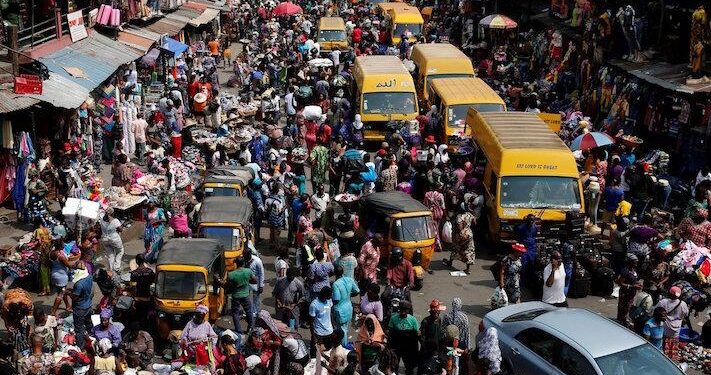Nigeria’s Sky-High Inflation Seen Cooling After Data Revamp
Nigerian inflation had been expected to ease this year regardless of the re-weighting amid tight monetary policy. But the changes are expected to cool prices even further, though economists are divided on the extent to which inflation will ease.
Adjusting the weights comes with the “implication that the inflation figure is going to reduce,” said Professor Festus Adenikinju, president of the Nigerian Economics Society and a former member of the central bank’s monetary policy committee.
The West African nation’s 2025 budget, currently being considered by lawmakers, factored in an annual inflation rate of 15% and President Bola Tinubu reaffirmed that target in a New Year’s broadcast. The goal was dismissed as unrealistic by critics, and the CPI-rebasing exercise has fanned suspicions that it will tactically serve to help meet that objective.
The soaring cost-of-living has been fueled by economic reforms imposed by Tinubu since he took office in 2023, led by the rollback of costly fuel subsidies and relaxing currency rules to let the naira trade more freely against the dollar, which led to its value plunging by about 70%.
The new weight “does not mean expenditure on food has reduced,” said Ayo Anthony, head of prices at the NBS, but was a reflection of households’ expenditures as captured in its survey. It also moves Nigeria closer to economies like Kenya, where food is a third of the CPI basket.
Nigerian statisticians are supposed to review the basket every five years to reflect consumption patterns and changes in the economy, but it was last updated in 2009. A price reference year of 2024 was chosen to reflect “the full impact of major government policies on prices,” Anthony said.
That’s been questioned by other economists, who say the choice of 2024 as the base year will flatter incoming data and help accelerate the reported decline in price pressures.
“In recent times, 2024 has had the highest volatility in inflation, and the choice of the year may not be appropriate as a base year,” said Chimere Iheonu, an economist at the University of South Africa in Johannesburg. “This would mean a statistical decline in inflation numbers. In reality, the effect of high prices on the cost and quality of living will persist.”
Still, other economists don’t expect a sharp change in inflation as a result of the rebasing exercise.
He expects the impact of the reduced weighting of food to soften inflation, but doesn’t expect a “drastic reduction” as that’d be offset by other line items in the index going the other way.
“Irrespective of the rebasing, base effects will kick in, which will lead to a reduction, but not to the 15% that the president was predicting,” Yusuf said.








